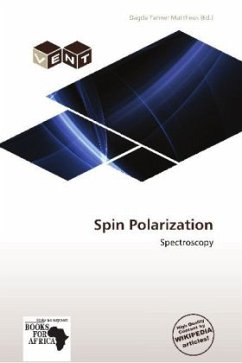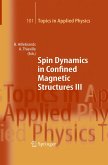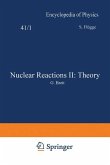Spin polarization is the degree to which the spin, i.e., the intrinsic angular momentum of elementary particles, is aligned with a given direction. This property may pertain to the spin, hence to the magnetic moment, of conduction electrons in ferromagnetic metals, such as iron, giving rise to spin polarized currents. It may refer to (static) spin waves, preferential correlation of spin orientation with ordered lattices (semiconductors or insulators). It may also pertain to beams of particles, produced for particular aims, such as polarized neutron scattering or muon spin spectroscopy. Spin polarization of electrons or of nuclei, often called simply magnetization, is also produced by the application of a magnetic field, thanks to the Curie law and it is used to produce an induction signal in Electron spin resonance (ESR or EPR) and in Nuclear magnetic resonance (NMR).
Bitte wählen Sie Ihr Anliegen aus.
Rechnungen
Retourenschein anfordern
Bestellstatus
Storno








